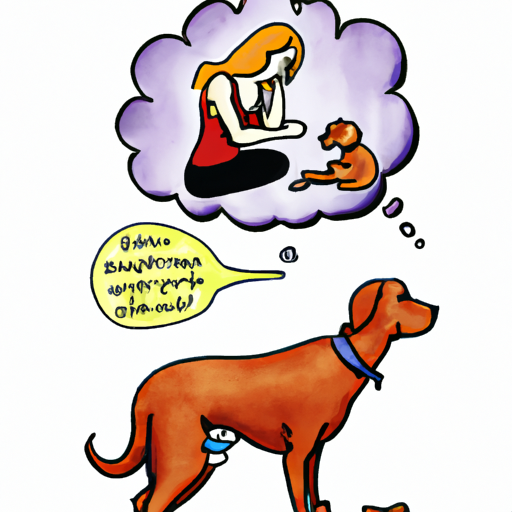Stomach ulcers, a common health issue in dogs, can cause significant discomfort and health problems for your furry friend. As a responsible caregiver, understanding the signs, causes, and treatment options can help you take appropriate action and ensure your dog’s speedy recovery.
Understanding Stomach Ulcers in Dogs
Stomach ulcers, also known as gastric ulcers, are lesions that occur in the lining of the stomach or the upper part of the small intestine. They are often caused by medications, stress, a poor diet, or underlying health issues. Symptoms can vary but often include vomiting, loss of appetite, weight loss, and lethargy.
Common causes of stomach ulcers in dogs:>
- Long-term use of nonsteroidal anti-inflammatory drugs (NSAIDs)
- Prolonged stress
- Ingestion of foreign object
- Certain infections, such as Helicobacter pylori
- Underlying health conditions like kidney or liver disease
Signs and Diagnosis
The first step in helping your dog combat stomach ulcers is identifying the problem. This can be challenging, as the signs can be subtle or easily mistaken for other health issues.
Common signs of stomach ulcers in dogs:
- Decreased appetite or anorexia
- Dark, tarry stools
- Vomiting, with or without blood
- Abdominal discomfort
- Weakness and lethargy
If you notice any of these signs, contact your vet immediately. They will likely perform a physical examination and may recommend further diagnostic tests such as blood tests, urinalysis, or imaging studies like ultrasound or endoscopy.
Treatment Options
Once a diagnosis is made, treatment should be initiated promptly. The treatment plan will largely depend on the underlying cause of the ulcer and the severity of your dog’s symptoms.
Common treatment options include:
- Medication: Your vet may prescribe medications to reduce stomach acid and protect the stomach lining. These drugs can include proton pump inhibitors (PPIs), H2 blockers, and sucralfate.
- Dietary Changes: A bland, easily digestible diet can help soothe the stomach lining and speed up recovery. Your vet can provide specific dietary recommendations.
- Stress Reduction: If stress is a contributing factor, implementing stress-reducing strategies such as regular exercise, environmental enrichment, and behavioral modification can help.
- Surgery: In severe cases or if a foreign object is causing the ulcer, surgery may be necessary.
Preventive Measures
Preventing stomach ulcers is far better than treating them. Here are some preventive measures you can take:
- Avoid giving your dog human medications unless prescribed by a vet
- Feed a balanced, high-quality diet
- Regular vet check-ups to catch potential issues early
- Minimize stress in your dog’s environment
Frequently Asked Questions (FAQs)
1. Can stomach ulcers in dogs be fatal?
While stomach ulcers can pose serious health risks, they are rarely fatal if treated correctly. However, if left untreated, they can lead to life-threatening complications such as perforation and bleeding.
2. How long does it take for a stomach ulcer to heal in dogs?
The healing time can vary depending on the severity of the ulcer and the dog’s overall health. However, with proper treatment, most ulcers should begin to heal within 2-3 weeks.
3. Can I give my dog over-the-counter ulcer medication?
You should never give your dog any medication without the approval of a veterinarian. Some over-the-counter ulcer medications can actually worsen the condition or cause other health issues.
4. How can I relieve my dog’s ulcer pain?
The best way to relieve ulcer pain is to follow the treatment plan recommended by your veterinarian. Pain should lessen as the ulcer begins to heal.
5. Can diet cause stomach ulcers in dogs?
A poor diet can contribute to stomach ulcers, but it is rarely the sole cause. However, diet can play a crucial role in both prevention and recovery.
Stomach ulcers can be a serious health issue for dogs, but with proper care and attention, your furry friend can make a full recovery. Always consult with your vet about any health concerns or treatment strategies for your dog. Your vigilance as a caregiver can make all the difference in your dog’s health and happiness.



